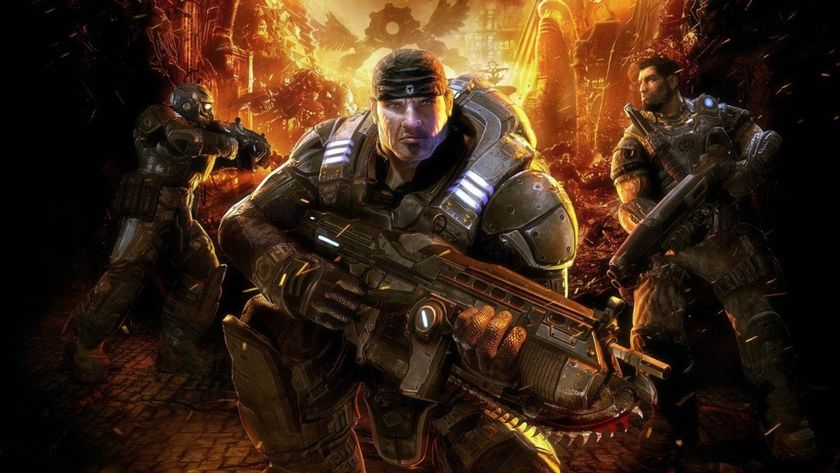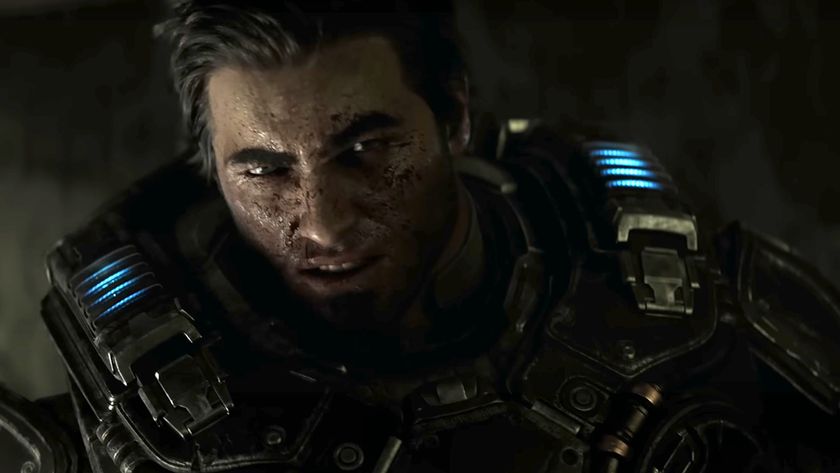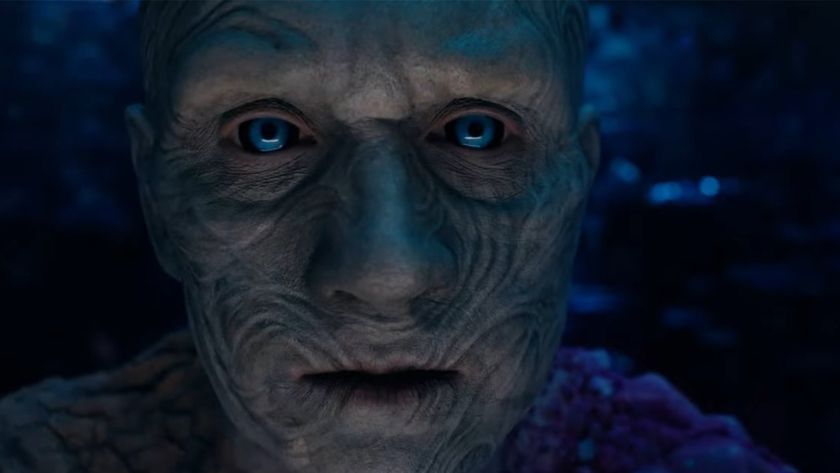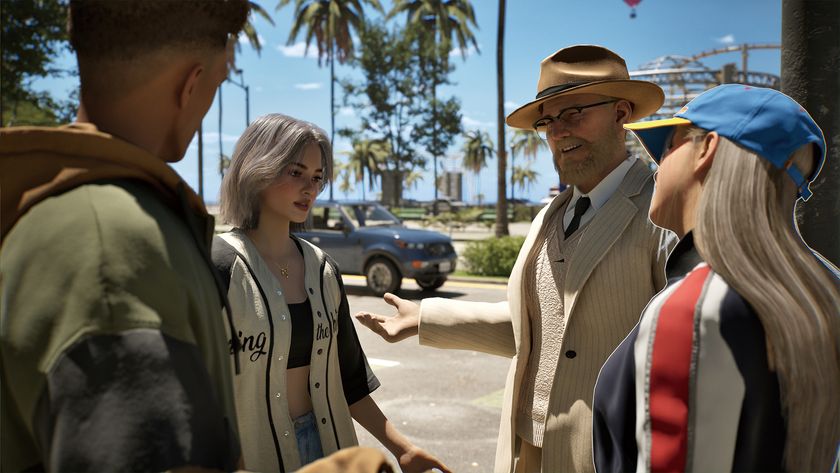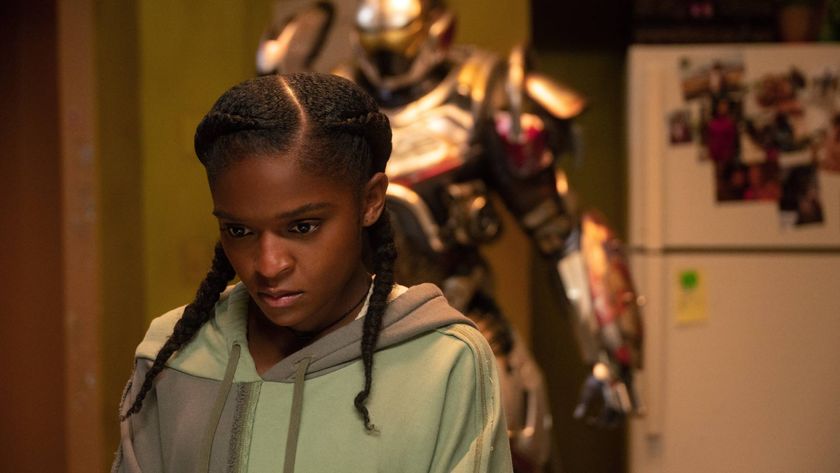Why Gears of War 3 is the Spider-Man 3 of video games
Gears of less-is-more
Embarrassingly overblown characterisation short-cuts
As I referenced in regards to Jace in the previous section, “Show, don’t tell” is an important narrative rule. But when executed clumsily or unnecessarily, it can be pretty detrimental to the whole work. Take another Spider-Man 3 example. Eventually we need to see that Peter is turning into an aggressive, arrogant arsehole as a result of prolonged use of the symbiote suit.
This would work most effectively as a progressive series of degenerating character traits, and simple but effective subversions of what we know and love about him, made emotionally affecting by the way the audience loses touch with all of the ways they identify Peter as a character. And indeed, this happens for a while. But then Sam Raimi goes balls-out with the overly deliberate emo fringe transformation, and then we get that goddawful dance scene in the piano bar. It’s quick-fix shorthand that bulldozes the point into the audiences faces, scaled up and stylised to the point of being ludicrous.
Above: The horror...
Which brings me on to Cole Train…
Now I like Cole. I always have, I always will. I’ve always found his no-nonsense exuberance to be refreshing and thoroughly enjoyable as it breezes through Gears’ otherwise stoic and world-weary cast. Above and beyond comic relief, he really balances Gears’ character line-up and adds a much-needed shot of genuine humanity to a world so often filled with grim and gritty archetypes.
In Gears of War 3 though, he gets de-railed in a totally unnecessary way. Perhaps as a case of that last-minute cram that caused so many problems for me in the game, perhaps as an attempt to deflect claims of him being little more than a token black guy stereotype, Epic decided to give Cole a prolonged spotlight near the start of the game. Regardless of the reasons for it, that idea made me a happy man. A sustained chunk of the Train was surely only ever going to be a hoot. Alas, the execution explodes in its own face.
Conceptually, it all starts out very well. Cole is revisiting his old home town, which is now in a state of decay. Through his interactions with his squad as they explore, not to mention smart little inclusions like the cardboard standee of him in his Thrashball-star prime, we get a really effective, sweetly underplayed impression of the man behind the whooping bravado. I like Cole. I liked all of this a lot. But then the Thrashball hallucination happens. It’s brief, but it’s overblown and contrived enough to mess up the whole effect.
Sign up to the GamesRadar+ Newsletter
Weekly digests, tales from the communities you love, and more
Above: THE HORROR!
Cole, for no particular reason, finds himself in a situation in which he has to run a bomb from one end of a battlefield to the other. That battlefield just happens to be on a Thrashball field. The target area just happens to be the end-zone. It was probably supposed to be a poignant hark back to Cole’s glory days, but what actually happened was that I ended up with my head in my hands, pleading to the heavens to explain to me what exactly the f*ck it was that I was witnessing. It’s overcooked, it’s cringingly over-staged, and it pile-drives the point into the audience’s face with a force that drums out any hope of emotional resonance.
Cole ran. Cole scored. Somewhere in a parallel reality, Toby Maguire was smugly dancing like a hateful loser, and in this one I just sat and watched as one of my favourite Gears characters lost all the dignity he’d gained over the last hour.
It’s the same sort of deal with the opening dream sequence. Marcus’ condemnation for sacrificing a past mission in order to save his father has always been a huge part of his character’s make-up. But it really should have remained in the past. Such a severely affecting formative event, a dramatic yet personal one which both typified and shaped Marcus’ character, is one that will always be more powerful when choreographed by the audience’s imagination. Show it explicitly, and doing so through the medium of a basic shooting gallery with wobbly visual filter effect, does the whole thing a disservice.
Above: Those first few minutes. Nowhere near as epic as they were in your imagination
Having the game open with it only compounded the problem for me. Suddenly the defining event of my protagonist’s life had all of the mystique and pathos ripped out of it by a needless scene simultaneously overblown and underwhelming, and thrown in seemingly for the sake of ticking as many fan-service boxes as possible on a checklist of things to do before the trilogy finishes. It was another bit of unnecessary narrative short-hand to sledgehammer home another unnecessary point. For me, it started the game on a deflating note, and unfortunately it set a precedent for my experiences throughout the whole journey. And speaking of supposedly epic events deflated through bad execution…
Lazy character-death
Dom’s death is a mistake. A tacky, lazy mistake. I say this not out of any embittered sadness at Mr. Santiago’s passing, but because in attempting to dignify him with a hero’s end, it serves only to cheapen his personal story.
Now I know that Gears has always had a reputation for being a big gruff game about a bunch of big gruff blokes with unsustainable muscle structure meat-headly blasting the crap out of things. But like most things that large groups of people on the internet agree upon and shout about on forums, that’s not strictly true. Now I’m not going to start trying to convince you that Gears of War is a delicately-affecting emotional parable on a par with the best works of Miyazaki or Spielberg, but there is more subtly-affecting stuff going on in the first two games than a lot of people give them credit for.
Above: Mock all you like. Gears used to be genuinely pretty decent at this stuff
Between the tone of regret and self-recrimination, the under-played little asides between Marcus and Dom, and the surprisingly well-handled resolution of Dom’s search for Maria in part two, they do pull this stuff off pretty well, even if they never reach the emotional heights hinted at by the trailers.
In Gears 3 though, all of that goes out of the window, and is squashed by a passing Brumak. Maybe it’s a case of not having properly thought of anything for Dom to do except mourn. Maybe it’s an over-attraction to dull, long-hackneyed Hollywood tropes. But what could have been a really interesting, slow-burning redemptive chapter for Dom becomes another sloppy, unimaginative quick-fix. And again, it’s a failing that Spider-Man 3 exhibited without shame.
Death = redemption is the slackest way of resolving a character arc that there is. It cuts out the need for character development, replaces it with a big, easy slab of quick-fix, mock-pathos, and smothers the whole thing with so much cheap sympathy as to hopefully manipulate the audience into feeling positive about a character through artificially-implemented strong-arm tactics rather than any genuine emotional appraisal of their actions and journey.
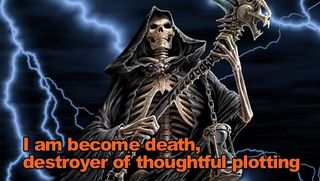
“Someone’s dead, that must be sad, and if it’s sad then they must have been a good person and we must be sympathetic”. That’s how simplistic its mechanical logic is. It was a cliché in Return of the Jedi, and it’s only become worse since the X-Factor and American Idol got hold of it as a weekly sob-story trope used to manipulate the audience into caring about total strangers.
Spider-Man 3 obviously uses it as a push-button redemption for Harry-Goblin, in lieu of bothering to write any of that tricky mutual understanding and reconciliation stuff between him and Peter. Gears 3 uses it because it seems to get bored of thinking of things for Dom to do, and so wraps him up and packages him off to avoid the inconvenience of working out how things might have turned out if he’d survived. And for something that was obviously supposed to be the dramatic and emotional crux of the game, its execution is comically bad.
Basically, they might have well have called the chapter in question “Hey everybody! This is the one where Dom dies!” As it was, they went with “Brothers to the end”, which doesn’t so much telegraph the shock outcome as beam it simultaneously into the skulls of everyone on the planet by way of some crazy kind of Johnny Mnemonic chip technology.
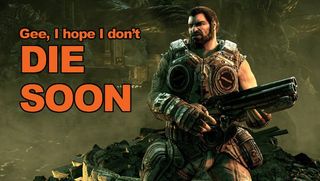
Above: It's exactly that subtle
That still too subtle for you? How about a tearful “I’ll see you again one day” scene between Dom and Maria, which broadcasts on roughly the same frequency as a World War II movie fighter pilot exclaiming that he only has one more mission to fly before he can go home and see the wife and kids. Still too subtle? How about if Dom then hands his knife to Marcus, confirming a pistol-whip blunt passing on of the baton, and managing to squeeze a hoary old Chekov's Gun cliché in there as well?
In watching all of these scenes, my thought process went as follows:
(Reads chapter title) “Dom’s going to die now, then” (Watches conversation with Maria) “Yeah, Dom’s definitely going to die now” (Watches Dom hand his knife to Marcus) “Oh bloody hell, Dom is so going to die now it’s bloody ridiculous, and Marcus is going to use his knife to kill the Locust Queen at the end of the game”
I was inaccurate on exactly 0% of that deduction. Dom deserved better than to be written off in an over-inflated, tired-out, lazy cliché. Especially one that turned the whole series' crescendo into the same.
And finally…

